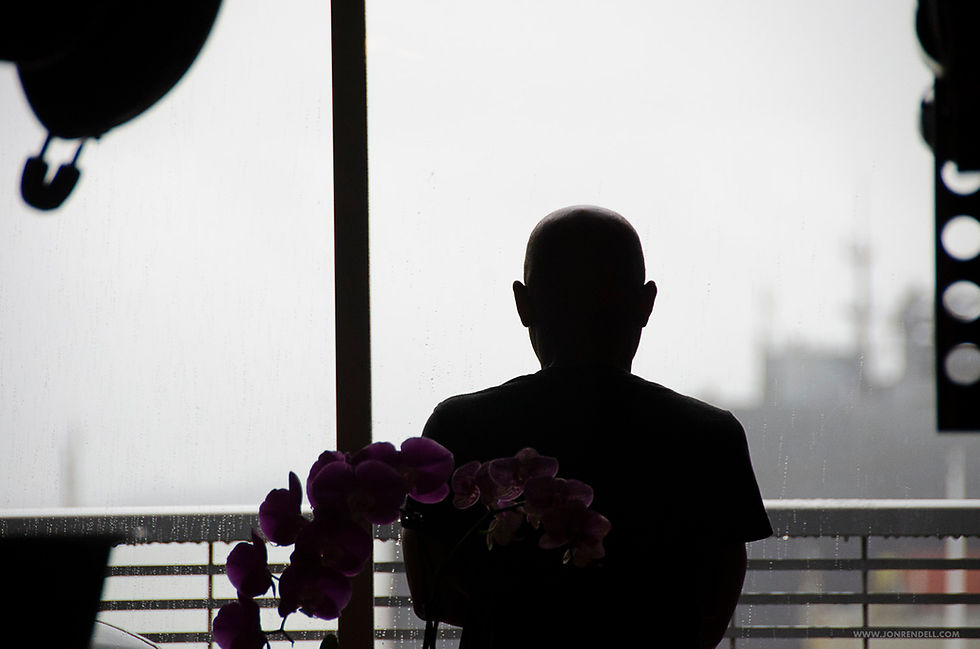Why People Lie & Why We Believe Them
- Sep 21, 2025
- 4 min read
Updated: Sep 24, 2025

We like to think we can spot a lie, but the truth is, humans are wired to believe each other. This instinct helped our ancestors survive and trust made communities possible. But in the wrong hands, our willingness to believe becomes a weapon. Lies are not just slips of the tongue; they are tools. They shape relationships, elections, wars, and histories. And while we focus on the people telling them, perhaps the harder question is: why do we keep falling for them?
Lying is as old as language itself. It all starts with childhood fibs about eating vegetables to be strong, waiting for the tooth fairy, a bunny hiding decorated eggs for us to find on Easter, or an obese man in a red outfit to come down the chimney with a bag of gifts, even when we don't have one. World leaders bend the truth for power and control. Deception weaves through human relationships like a thread we can't quite untangle. Understanding the psychology of lying and believing the lies isn't just interesting, it's essential in a world where misinformation travels faster than the truth.
There are many faces to lies. We have all been lied to at one time or another. Not all lies are created equal. Some are wrapped in kindness, while others are coated in poison. We tell “white lies” to protect feelings such as, “Dinner was delicious” when it wasn’t. Then there are self-serving lies: the résumé embellishment, the “I’m stuck in traffic” excuse, or the cover-up after a mistake. More dangerous still are pathological lies, where dishonesty becomes compulsive. And let’s not forget the social lies, those small deceptions that grease the wheels of relationships and make daily life less abrasive. Over the years lessons in life have taught me that everyday fibs to grand scale deception, lying is a part of human life. Yet, we continue to believe the lies even when the truth may be hiding in plain sight. Lying, in short, is a human survival skill. But survival for whom, the liar, or the person being lied to?
Why do we believe so many lies we are told?
We crave certainty. Lies often give us neat, simple answers in a world that feels messy and overwhelming.
We trust by default. Human society is built on cooperation. If we doubted everything, our relationships and communities would collapse.
We want to believe. Confirmation bias nudges us to accept lies that reinforce what we already think. If a story aligns with our worldview, it feels more “believable”.
Repetition works. Studies show that hearing something repeatedly, even if it’s false, makes us more likely to believe it.
On a personal level, lies erode trust. In families, friendships, and relationships, dishonesty creates cracks that are difficult to repair. In the workplace, lies destroy morale and credibility. On a societal level, unchecked lies can become deadly. Think of health misinformation that spreads faster than truth, or political lies that polarise communities and destabilise democracies. A single lie can fracture a bond between friends, family, and colleagues. A culture of lies can fracture a nation.
As young children, my mother worked diligently to teach me and my siblings how to spot liars. It became one of my favourite games to play. Today, I love watching liars in action, especially when they think you believe them. You can't live your life second-guessing everyone, but you can sharpen your awareness. Here are a few hints on how to spot a liar:
Listen for inconsistencies. Does the story shift depending on when or how it's told? Most liars are unable to keep track of all the lies they have told and may become angry when put on the spot. That's when the whining and kicking like an angry toddler begins.
Watch the details. Overly vague or overly complicated explanations can both signal deception.
Notice behaviour. Avoidance of eye contact, defensiveness, or overcompensation can raise red flags, but remember, these aren't foolproof signs.
Cross-check. In an age of information, verification is only a click away.
Protecting yourself without losing trust in others, especially friends and family members can be challenging. The goal isn't to become cynical, it's to be clear-eyed. We must build strong habits of healthy scepticism by asking questions, looking for evidence, and it's essential to remember that even people with good intentions may not always tell the truth. We can also protect ourselves by creating spaces where honesty is safe. If people don't fear punishment for telling the truth, they are less likely to lie in the first place. Often in relationships, people will lie to try to make their partner comfortable by saying "I'm fine" to avoid emotional discomfort or questioning. Lies about sexual history or infidelity can be used to make a positive impression or avoid judgment. Most people believe that being honest may lead to a fight or separation. We can also protect ourselves by creating spaces where honesty is safe. If people don’t fear punishment for telling the truth, they’re less likely to lie in the first place.
Lies may sprint ahead, but truth runs a marathon. Understanding why people lie and why we believe them gives us the power to slow down, question, and protect what matters most, our trust, our relationships, and our shared reality. Being human means we’ll always encounter lies. But being wise means, we won’t always believe them.








Comments